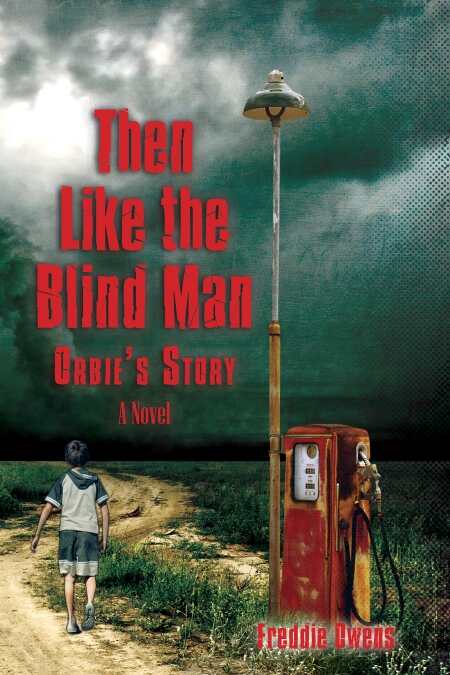Then Like the Blind Man
Orbie's Story
At nine, Orbie seems to live his life along a precipice. He is burdened with an overabundance of difficult choices which would be beyond the capacities of most boys his age—but Orbie is about to discover that he’s no ordinary boy. In the debut novel from artist and poet Freddie Owens, nothing is ever precisely what it seems: prejudice is not innate, the dead aren’t really dead, and those in positions of power cannot be trusted.
Orbie finds himself deposited at his grandparent’s home in Kentucky one summer, his stepfather, Victor, having had a change of heart about including him on a family prospecting trip to Florida. Except “heart” doesn’t seem, to Orbie, quite the right word to apply to his stepfather, whose tempestuous temper took him from the widowed family’s salvation to its most dangerous element in one outburst flat.
With no end to his stay in sight, Orbie finds himself settling into routines all but unthinkable weeks before. He becomes fast friends with the Kingdom Boys, who he’d have happily kept himself segregated from back home in Detroit, though he now finds that skin color is not the best indicator of trustworthiness. He forms a strong bond with Willis, the stunningly talented, physically disabled black boy connected to his grandparents via their mysterious friend Moses, who may call down the rain.
Orbie’s story is driven by elements of magical realism. Dreams melt into prophecy; Orbie learns to part the clouds and peer into the past, with charismatic Moses as an occasional guide. He’ll need these newfound abilities, and the curious new maturity they bestow, when Victor and his mother unexpectedly return, tumult behind them and an incredible storm at their front. Orbie watches as his world is rent and, as his family slips closer to the maelstrom, finds himself wondering this: at the last, why do we wish to save that which we once needed to destroy?
Then Like the Blind Man is an electrifying porthole to the South of the ‘50s, where, though inane prejudice may have dominated, kindness and justice also had a place. Orbie’s sharecropping grandparents, by defying convention with unnerving grace, become founts of colloquial wisdom whose appeal is impossible to resist, and the Orbie they nurture—the best version of a boy who may otherwise have been lost—is someone the reader comes to love. These are characters with incredible heart and appeal, and the turbulent world they inhabit is magnetically drawn. Ethical and spiritual challenges abound in this intelligent and unusual tale, and readers will be enlivened and edified by its climactic moments.
Reviewed by
Michelle Anne Schingler
Disclosure: This article is not an endorsement, but a review. The publisher of this book provided free copies of the book and paid a small fee to have their book reviewed by a professional reviewer. Foreword Reviews and Clarion Reviews make no guarantee that the publisher will receive a positive review. Foreword Magazine, Inc. is disclosing this in accordance with the Federal Trade Commission’s 16 CFR, Part 255.

